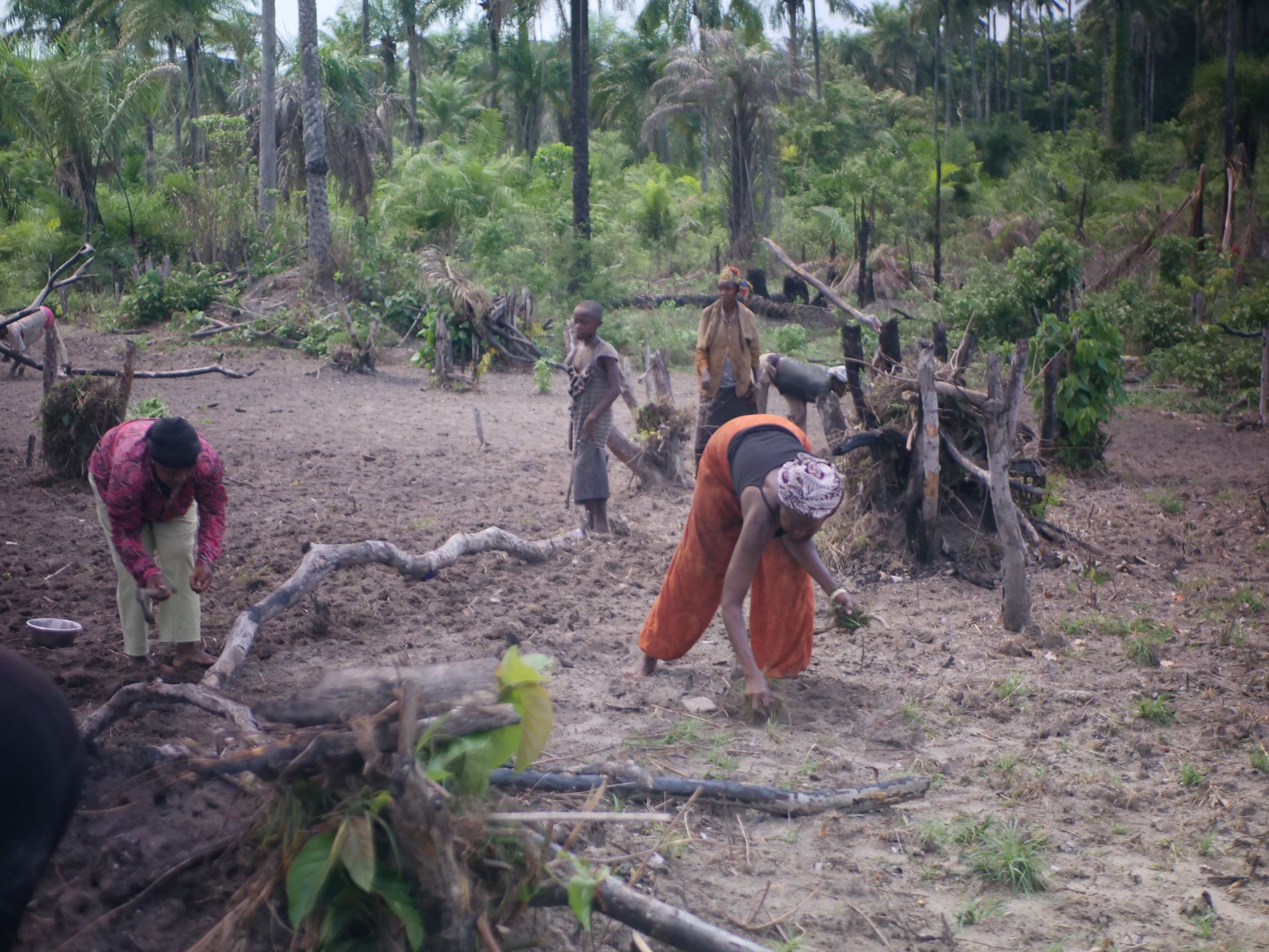‘It’s undeniable that Sierra Leone women are a force to be reckoned with’. So says Maria Bradford in her cookery book ‘Sweet Salone’ which is peppered with examples of the strength and resilience of her countrywomen.
We have found the same and it has been exhilarating to see the energy, compassion and community spirit of the women’s groups in the village and the changes that they have been able to make with a little income of their own.
Villages in Sierra Leone have a strong democratic structure with a chief (occasionally a woman), women’s leader and youth leaders. As in most of Sub Saharan Africa women carry the double burden of looking after their families and doing much of the farming, whilst having very little financial independence.
Rory’s Well first started working with the women’s groups to set up community women’s farms in 2017 and we were really impressed with the differences the small amount of independent income from selling crops made to them.
Not only were they able to feed their families better, they could pay the men to clear land for them and Tenneh from Waima told us ‘Our status in the village is now much better. If there is a dispute between a man and wife they now bring it to us and we can help settle it’
However, like all upland farming, the land fertility deteriorated rapidly and within two years we were being asked for help to clear more land.
This started our search for a more sustainable method of farming, leading us to trial a method of growing crops within rows of nitrogen fixing trees called Inga Alley Cropping- which I will discuss more fully in the next article.
Although by UK standards the trees grow very quickly it is three years before crops can be planted in the alleys so we looked at other ways to support the women during this period.
Groundnuts are a very useful crop in Sierra Leone. They are nitrogen fixers so improve the soil and, with careful planting, two crops can be grown in a year, the second crop being doubly important as it is harvested during the ‘hungry season’ when few other crops are available.
Following Tenneh’s example and training her, and other women’s leaders, as facilitators we are enabling them to set up women’s loan schemes within the villages by donating a small amount of seed capital and a basic mobile phone to each group trained.
When I traveled round talking to people last year the women involved told me that this had enabled them to support each other to set up small businesses, deal with family crises and increase their capital, especially by groundnut farming.
In March this year we held a ‘Women’s Gathering’ where women from the initial villages involved in the scheme were able to share their experiences with those coming into it.
They heard how some people were now selling home made soap or hot breakfasts in the villages, growing hot chilli peppers and other crops and expanding their groundnut farms. Tenneh impressed the (male) lead farmers with her eloquence and initiative. The main message she gave her peers was ‘Don’t let your men get their hands on your money!’
The ‘Holy Grail’ of all development work is that people should continue the initiative without further support from the charity. This year, seventeen community women’s farms have had a good first harvest of groundnuts and planted a second crop. Seven of these have been able to do so without any financial support in 2024.
Tenneh and the other facilitators are now able to keep in touch with the twelve trained groups as well as our lead farmers and we will expand the scheme to a further six villages next year.
It gave me great pleasure to hear Steven ,who heads our partner NGO say,with genuine astonishment in his voice,’It’s really amazing, what these women have been able to do!’
If this story interests you and, like me, you need to focus on positive action to counter the pervasive anxiety we all feel about the future of our world, there are many things which you could do:
Fundraising www.roryswell.org/donate.html
Partnerships– could your organisation support this work in some way?
Personal Connections– get in touch via our website www.roryswell.org , attend some of our events, spread the word…








